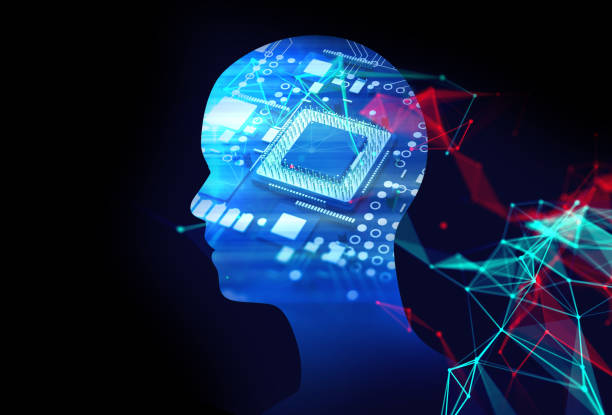Introduction to AI Assistants

In today’s world, where the pace of change continues relentlessly, the role of technology in facilitating life and work has become more prominent than ever.
Meanwhile, Artificial Intelligence, as one of the most pioneering fields, has achieved stunning breakthroughs, among the most important of which is the emergence of AI assistants.
These assistants are software programs or devices that, using complex algorithms and machine learning, have the ability to understand and respond to user commands.
They can perform various tasks, including setting reminders, playing music, searching for information, managing calendars, and even controlling smart home devices.
#AI_assistant is literally a #digital_companion that makes our lives easier.
These assistants not only interact with our voice but some are also capable of understanding natural language and even recognizing emotions.
Their main goal is to increase user productivity and convenience by automating repetitive tasks and providing real-time information.
These capabilities have quickly cemented AI assistants’ place in our daily lives, transforming them from mere luxury tools into necessities.
They are constantly learning and adapting to our needs, and this adaptability has made them powerful tools for the future.
Does your current website showcase your brand’s credibility as it should? Or does it drive potential customers away?
Rasaweb, with years of experience in professional corporate website design, is your comprehensive solution.
✅ A modern, beautiful website tailored to your brand identity
✅ Significant increase in lead and new customer acquisition
⚡ Contact Rasaweb now for a free consultation on corporate website design!
History and Evolution of AI Assistants
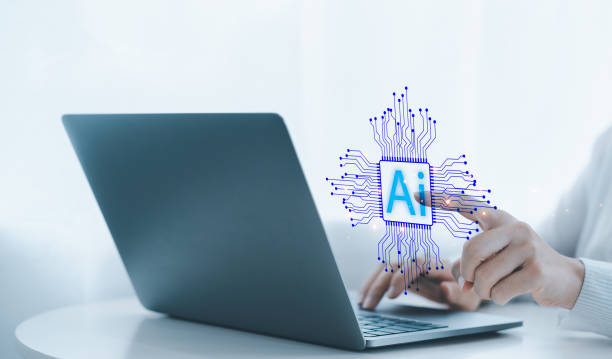
The journey of AI assistants began with science fiction ideas and gradually became a reality.
The roots of this technology can be traced back to the 1950s with the first attempts to build natural language processing programs.
However, the modern assistants we know today are the result of significant advancements in recent decades.
In the 1990s, products like Microsoft Bob attempted to provide more user-friendly interfaces but lacked true intelligence.
The real turning point came with advancements in speech recognition and deep learning in the early 21st century.
Apple’s introduction of Siri in 2011 marked the beginning of a major competition in the AI assistant market.
This product not only had voice capabilities but was also able to understand context and execute more complex commands.
Subsequently, Google with Google Assistant, Amazon with Alexa, and Microsoft with Cortana entered the arena, each developing their own AI assistant ecosystem with a focus on specific features.
This evolutionary trend indicates the continuous increase in AI assistant capabilities in understanding and interacting with humans.
From simple keyword recognition to understanding the complexities of natural language and even predicting user needs, AI assistants have come a long way and are becoming smarter every day.
This continuous evolution has enabled them to play a role in various scenarios, from smart homes to automobiles and even industrial environments.
Types and Main Applications of AI Assistants

AI assistants are available in various forms and with diverse applications, each designed to meet specific needs.
Generally, they can be divided into two main categories: voice assistants and text-based assistants.
Voice assistants like Siri, Alexa, and Google Assistant have the ability to recognize and process human speech, allowing users to perform various tasks using voice commands; from playing music and setting alarms to controlling smart home appliances and searching the internet.
These assistants are particularly useful in scenarios where access to a keyboard or display is not possible.
In contrast, text-based assistants, often seen as Chatbots or text interfaces, operate based on written interaction.
This type of AI assistant is mostly used on customer service websites, messaging applications, and online support systems, and can answer user questions, provide information, or even facilitate purchasing and booking processes.
The main applications of AI assistants are very broad and include the following:
| Assistant Type | Examples | Main Applications |
|---|---|---|
| Voice Assistant | Siri, Alexa, Google Assistant | Music playback, alarm setting, smart home control, phone calls, sending SMS |
| Text-based Assistant (Chatbot) | ChatGPT, Bard, customer support chatbots | Answering questions, providing information, customer service automation, content generation |
| Specialized Assistant (Programming/Data Analysis) | GitHub Copilot, AlphaCode | Code generation, debugging, complex data analysis, system design |
Furthermore, AI assistants can also be applied in more specialized fields such as health, education, and finance, helping to provide precise and personalized advice.
This expansion of applications demonstrates the enormous potential of AI assistants in improving the quality of life and work.
AI Assistants in the Workplace and for Productivity
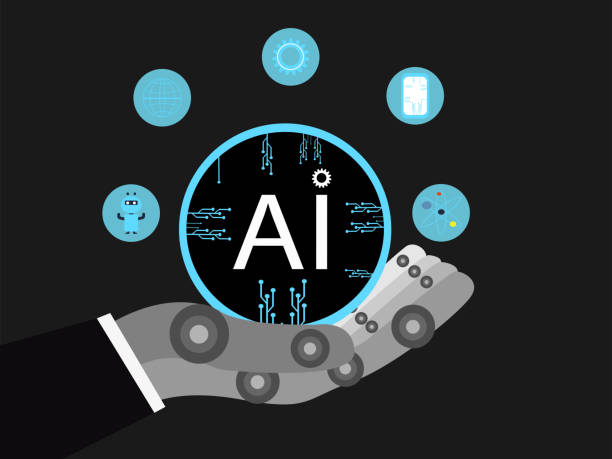
In modern workplaces, AI assistants have become a key tool for increasing productivity and efficiency.
This technology can automate repetitive and time-consuming tasks, allowing employees to focus on more strategic and creative assignments.
For example, AI assistants can schedule meetings, manage emails, provide summaries of long documents, and even draft initial reports or emails.
In customer service, AI chatbots can answer frequently asked questions and resolve simple issues, while human operators can address more complex cases.
This leads to improved response times and increased customer satisfaction.
Furthermore, in project management, AI assistants can help teams complete projects on time and within budget by monitoring progress, identifying bottlenecks, and suggesting solutions.
The analytical capabilities of these assistants are also invaluable in analyzing business data and identifying hidden patterns and trends, which helps managers make more informed decisions.
Finally, employee training and support is another important application; an AI assistant can act as a virtual tutor, providing the necessary information for learning new skills.
These capabilities demonstrate that AI assistants not only simplify daily tasks but also contribute to a fundamental transformation in how organizations operate.
Did you know that poor online store design can drive away up to 70% of your potential customers? Rasaweb, with professional and user-friendly e-commerce website design, will revolutionize your sales.
✅ Significant increase in sales and revenue
✅ Full optimization for search engines and mobile
⚡ [Get a free consultation from Rasaweb]
AI Assistants for Personal Life and Entertainment
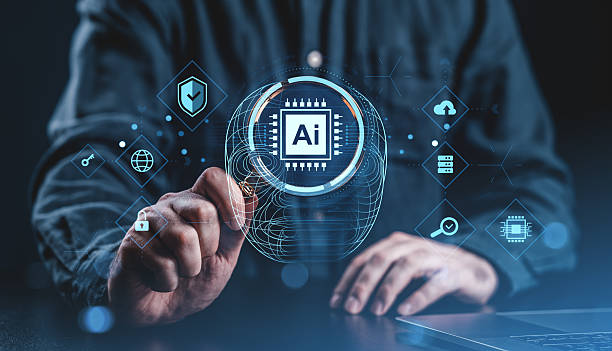
Beyond the workplace, AI assistants have increasingly permeated our personal lives and entertainment aspects, changing the way we interact with technology and the world around us.
In smart homes, a central AI assistant can act as the mastermind, taking charge of controlling all smart devices, including lighting, temperature, security systems, and home appliances, via voice commands or a centralized application.
This capability not only increases convenience but also helps optimize energy consumption.
In the realm of entertainment, an AI assistant can create personalized music playlists based on user preferences, suggest new movies and TV series, and even play favorite news and podcasts.
These assistants are capable of answering general questions, announcing sports scores, and providing weather information.
For the elderly or individuals with disabilities, AI assistants can become vital tools for maintaining independence and accessing information and services.
They can serve as medication reminders, connect with loved ones, and even act as an information source in emergencies.
The entertaining and interactive aspect of AI assistants, especially in games and educational apps for children, is also prominent; they can tell stories, ask riddles, and even help improve speaking and language skills.
These examples show how AI assistants have become an inseparable part of our daily lives, offering a personalized and richer experience.
Challenges and Ethical Considerations of AI Assistants

Despite countless advantages, AI assistants also come with significant challenges and ethical considerations that require serious attention and solutions.
One of the biggest concerns is the issue of data privacy.
AI assistants collect large amounts of users’ personal information, including conversations, interests, habits, and even location, to provide personalized services.
There are concerns about how this data is stored, used, and protected, especially in the face of security breaches or potential misuse.
Another is the issue of cybersecurity.
Since these assistants are connected to sensitive systems, a security vulnerability could lead to unauthorized access to information or control of connected devices.
The issue of bias in algorithms is also a serious challenge.
AI assistants are trained on data collected by humans, and if this data contains social, racial, or gender biases, the assistant will reproduce these biases, leading to unfair or discriminatory decisions.
The impact of AI assistants on the job market and the potential for replacing human jobs is also questionable.
Although this technology can create new jobs, there are concerns about job displacement for certain groups.
Transparency in performance and accountability of AI assistants is also important.
Users need to know how these systems make decisions and, in case of error, who is responsible.
These challenges indicate that the development and deployment of AI assistants require strong ethical and regulatory frameworks to ensure that this technology operates for the benefit of humanity.
The Future of AI Assistants and Emerging Trends
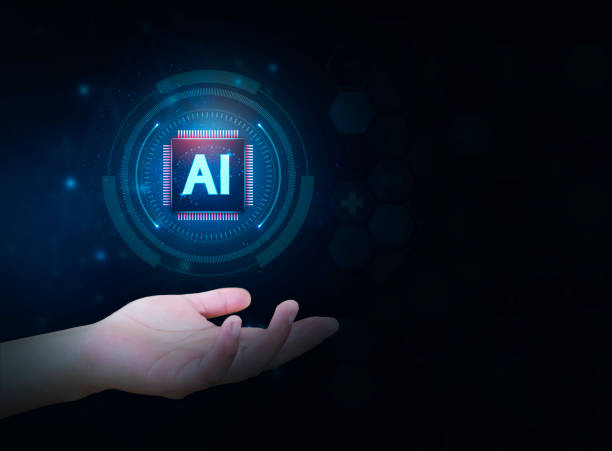
The future of AI assistants promises exciting advancements and profound transformations in how we interact with technology.
One key trend is the move towards more pervasive and intelligent assistants that not only react to commands but are also capable of anticipating user needs and providing proactive suggestions.
These assistants, by leveraging Ambient Intelligence and a better understanding of user context and history, can provide a truly personalized and seamless experience.
The development of Multimodal Interfaces is another important trend; meaning that AI assistants will be able to understand and respond to information not only through voice but also through images, body movements, and even physiological reactions.
This capability will make interaction with assistants much more natural and efficient.
Furthermore, AI assistants are expected to converge with other technologies such as the Internet of Things (IoT) and Virtual and Augmented Reality (VR/AR), forming smarter ecosystems where assistants are seamlessly present in all aspects of our lives.
Advancements in Artificial General Intelligence (AGI), though still in its early stages, could lead to the creation of assistants capable of performing any intellectual task a human can, which would be a revolutionary transformation.
Massive investments in research and development in the field of AI assistants indicate that this area is rapidly growing, and in the near future, we will see assistants that are not only smarter but also emotionally connect with us.
These advancements promise that AI assistants will soon become not just helpful assistants but inseparable companions in our lives.
| Emerging Trend | Description | Expected Impact |
|---|---|---|
| Ambient AI | Assistants that respond to needs seamlessly and without explicit commands. | Fully integrated and intelligent user experience in various environments. |
| Multimodal Interfaces | Interaction with the assistant via voice, image, gestures, and biometric data. | More natural and richer human-AI interaction. |
| Convergence with VR/AR | Integration of assistants into virtual and augmented reality environments. | Creation of new and interactive experiences in digital and physical spaces. |
Choosing and Setting Up a Suitable AI Assistant
![]()
Choosing a suitable AI assistant requires careful consideration of your needs and priorities.
In today’s market, numerous options are available, including popular voice assistants like Alexa, Google Assistant, and Siri, each with its own ecosystem and strengths.
Before choosing, you need to pay attention to a few key points.
First, compatibility with your existing devices is important.
If you use Apple products, Siri might be the best option, while for Android users, Google Assistant offers greater integration.
Second, specify your required features and functionalities.
Are you looking for an assistant that can control your smart home devices, or do you primarily need it for calendar management and daily tasks? Some assistants perform stronger in specific areas like music or news.
Data privacy and security are also crucial factors; review each company’s data collection and usage policies to ensure your personal information is protected.
After choosing, setting up an AI assistant is usually a straightforward process.
For hardware assistants like smart speakers, simply plug in the device and connect it to your Wi-Fi network via the relevant application.
For software assistants on a phone or computer, activation is typically done through system settings or by downloading an application.
After initial setup, you can personalize the assistant, such as adjusting the assistant’s voice, adding favorite music services, and enabling integration with other apps and devices.
Learning basic voice commands and practicing with the assistant will help you make the best use of it, and gradually your AI assistant will become more accustomed to your speech patterns and needs.
Does your current website convert visitors into customers or drive them away? Solve this problem forever with professional corporate website design by Rasaweb!
✅ Build strong credibility and branding
✅ Attract target customers and increase sales
⚡ Get a free consultation now!
Impact of AI Assistants on Economy and Society
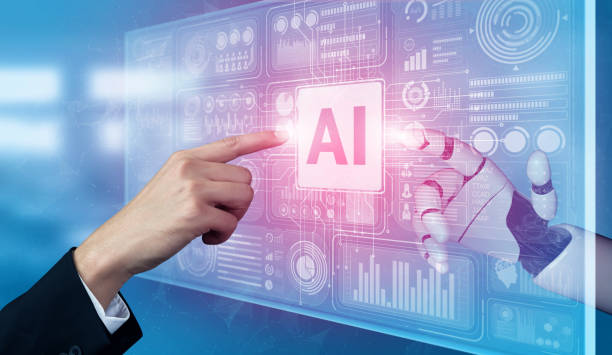
AI assistants have not only revolutionized our individual lives but have also had profound impacts on the structure of the economy and society.
Economically, these assistants contribute to economic growth by increasing productivity and efficiency across various industries.
Automating routine tasks by AI assistants allows companies to redirect their human resources towards higher-value activities.
This can lead to reduced operational costs and increased profitability.
Furthermore, the emergence and development of these assistants have given rise to new industries such as AI software development, specialized hardware, and AI support services, which in turn have created new job opportunities.
In society, AI assistants play an increasing role in access to information and services.
They can help improve personalized education and learning, facilitate access to healthcare in remote areas, and even assist individuals with disabilities to live more independent lives.
However, as mentioned earlier, there are also challenges.
Issues such as job displacement in some sectors due to automation, the need for workforce reskilling, and ensuring equitable access to this technology for all segments of society are among the main concerns.
Furthermore, there are concerns about the long-term impact of frequent interactions with AI assistants on human social skills and cognitive abilities.
Precise regulation and policymaking are essential to manage these developments, ensuring that the benefits of AI assistants are widely and equitably distributed and their potential risks are minimized.
Society must be prepared to make optimal use of this powerful tool.
Conclusion and Final Outlook
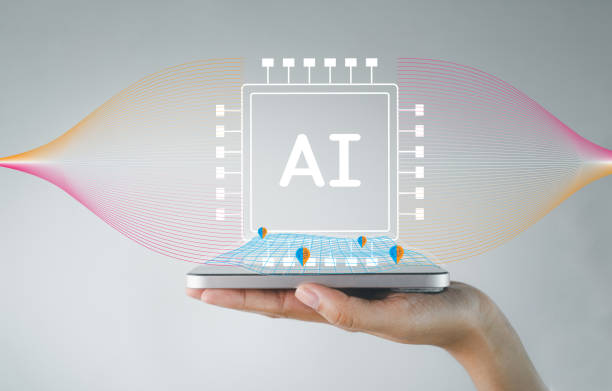
Ultimately, AI assistants have transformed from a science fiction concept into a tangible and influential reality in our daily lives.
This technology, with its capabilities in increasing productivity, simplifying tasks, and providing personalized experiences, has revolutionized our personal and work lives.
From managing smart homes and providing personal entertainment to assisting businesses in increasing efficiency and making better decisions, assistants play a vital role.
However, like any powerful technology, AI assistants also come with significant challenges, including privacy, security, algorithmic bias, and impact on employment, which necessitate responsible approaches to their development and use.
The future outlook for these assistants is bright and full of potential.
We are on the verge of entering an era where AI assistants not only respond to our commands but can also anticipate our needs, proactively offer suggestions, and seamlessly integrate into all aspects of our lives through ambient intelligence.
Convergence with technologies like the Internet of Things and virtual reality unlocks limitless possibilities for these assistants, transforming them into tools that are not only more efficient but also more integrated into our lives than ever before.
To fully leverage the potential of AI assistants and address their challenges, collaboration among developers, policymakers, and users is essential.
With responsible and conscious development, AI assistants can become a driving force for human progress in the coming years and significantly improve our quality of life.
This journey has just begun, and the future that AI assistants shape for us looks more exciting than ever.
Frequently Asked Questions
| Row | Question | Answer |
|---|---|---|
| 1 | What is an AI assistant? | It is a software program that performs tasks or services for an individual based on verbal or text commands. |
| 2 | Name a few examples of AI assistants? | Siri, Google Assistant, Alexa, and Cortana. |
| 3 | How do AI assistants work? | They use Natural Language Processing (NLP), machine learning, and artificial intelligence to understand user input and provide responses or perform tasks. |
| 4 | What can an AI assistant do? | Answer questions, set reminders, play music, send messages, manage calendars, and control smart devices. |
| 5 | What are the benefits of using an AI assistant? | Increased productivity, quick access to information, assistance for individuals with special needs, and simplification of daily tasks. |
| 6 | Are AI assistant responses always accurate? | No, they may sometimes make mistakes or provide outdated information, especially concerning complex or sensitive topics. |
| 7 | What are the privacy concerns regarding AI assistants? | Recording and storing voice/text data, potential for unauthorized access, and use of data for advertising purposes. |
| 8 | What will the future of AI assistants be like? | Becoming smarter, greater integration with devices and platforms, deeper understanding of emotions, and ability to perform more complex tasks. |
| 9 | Do AI assistants learn from users? | Yes, through machine learning and data collection from previous interactions to improve performance and personalize responses. |
| 10 | What is the difference between an AI assistant and a chatbot? | An AI assistant has the ability to perform a wider variety of tasks beyond conversation and is often integrated with an operating system or hardware, whereas a chatbot is primarily designed for conversation or answering specific questions. |
And other services of Rasaweb Advertising Agency in the field of advertising
Smart Conversion Rate Optimization: Designed for businesses seeking to attract customers through user experience customization.
Smart Sales Automation: A combination of creativity and technology to improve SEO ranking through SEO-driven content strategy.
Smart Direct Marketing: A fast and efficient solution to increase click-through rates by focusing on precise audience targeting.
Smart SEO: Professional optimization for online growth using key page optimization.
Smart Conversion Rate Optimization: Designed for businesses seeking to improve SEO ranking through precise audience targeting.
And over a hundred other services in the field of internet advertising, advertising consulting, and organizational solutions
Internet Advertising | Advertising Strategy | Advertorial
Sources
AI and Daily Life
AI Applications in Business
Life Transformation with AI Assistants
Personal AI Assistants
? Are you ready for your business to shine in the digital world? Rasaweb Afarin Digital Marketing Agency, with an expert and creative team, offers the best comprehensive solutions including custom website design, SEO optimization, and intelligent social media management for your sustainable growth and success.
📍 Tehran, Mirdamad Street, next to Central Bank, Southern Kazeroun Alley, Ramin Alley, No. 6

